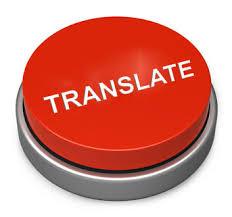The Importance of Specialist Arabic-English Dictionaries in
Translating Technical Arabic Prose
Translating an Arabic text of a technical nature into English needs extreme caution.
This is because translating medical or legal prose from Arabic into English is completely different from translating an Arabic text of a generalist nature into English.
The medical and legal fields have their own respective specialist and sector-specific terminology and style.
What a translator can use to render a text from Arabic to English in a non-technical paper, in most cases, would not work with a legal or medical text.
For this reason, a seasoned and professional Arabic translator would arm himself/herself with an arsenal of specialist Arabic-English dictionaries, which are indispensable when it comes to translating a specialist text.
These field-specific dictionaries are available online and in bookstores and are an extremely useful resource for any translator, especially those embarking on a career in the translation industry.
Without these technical Arabic-English dictionaries, the chances are high that the translator – especially beginners – will fail to translate the Arabic technical text into English accurately and faithfully.
Let’s give some illustrative examples:
If you are a legal translator and have not had many years of experience in the field, then you would most likely benefit from Faruqi’s Law Dictionary, a specialised Arabic-English legal dictionary.
Similarly, if you are a medical translator and do not possess sufficient experience, expertise and knowledge, you would definitely find Hitti’s New Medical Dictionary an extremely helpful resource.
To translate Arabic prose in the area of biology, you would need something like the Dictionary of Genetics and Molecular Biology.
These specialised Arabic-English dictionaries are produced by specialists in their own fields, people who know what should be used when.
Let’s clarify with a simple example:
يجوز للمديرين القيام بأعمال اخري
This is a very short and simple Arabic phrase.
If used in a general context, a translator may render it as: The managers can do other jobs.
However, if this is a phrase from a legal contract or agreement, the legal translator will need to do it differently to suit the legal nature of the context.
It will be rendered as: Managers may perform other activities.
In the second translation, the word “may” is used as an equivalent for the Arabic word يجوز
But in the first translation, the translator used “can” for the same Arabic word. A professional legal translator would not use the word “can” in a legal context.
So, to clarify further, a single word can have different translations depending on whether it is a generalist text or one of a technical nature.
As can be seen from the explanation above, it is highly
recommended that you arm yourself with a good set of specialised Arabic English
dictionaries if you translate technical Arabic prose to English – especially if
you are a beginner or a novice in Arabic-English translation.
